Verand, Texas. (original) (raw)
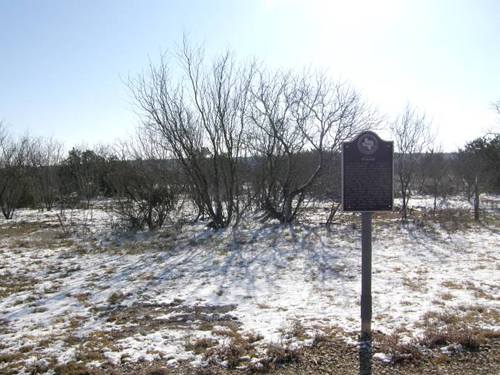
Verand Historical Marker in snow
Photo courtesy Barclay Gibson, February 2010
History in a Pecan Shell
The first town to be established in the county, it may have been the only settlement in Texas settled by Vermonters. A ranch, appropriately named The Vermont Ranch was established here in the 1880s.
Every ranch needs a town to ride into, and so Verand was set up for that purpose. Soon a school was established as well as a store and hotel. The town was on it�s way to becoming county seat but there was difficulty with obtaining clear titles to town lots. With the establishment of Eldorado in 1895 and the offer of free town lots (with clear titles), Verand was all but evacuated. The Verand post office which was in its third year in 1895 relocated to Eldorado as did businesses and residences.
Other than a few postmarks, the lone historical marker installed in 1968 is now the only proof that Verand existed.
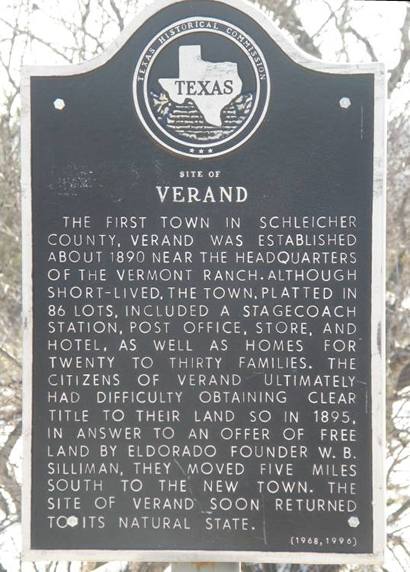
Site of Verand Historical Marker
Photo courtesy Barclay Gibson, February 2010
Historical Marker (US 277, about 5 miles N of Eldorado)
Site of Verand
The first town in Schleicher County, Verand was established about 1890 near the headquarters of the Vermont Ranch. Although short-lived, the town, platted in 86 lots, included a stagecoach station, post office, store, and hotel, as well as homes for twenty to thirty families. The citizens of Verand ultimately had difficulty obtaining clear title to their land so in 1895, in answer to an offer of free land by Eldorado founder W. B. Silliman, they moved five miles south to the new town. The site of Verand soon returned to its natural state.
(1968, 1996)
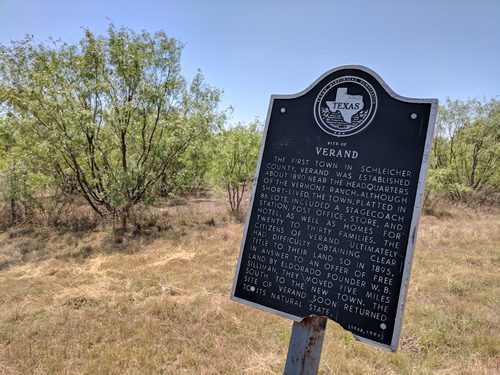
Verand site
Photo courtesy MF, July 2017
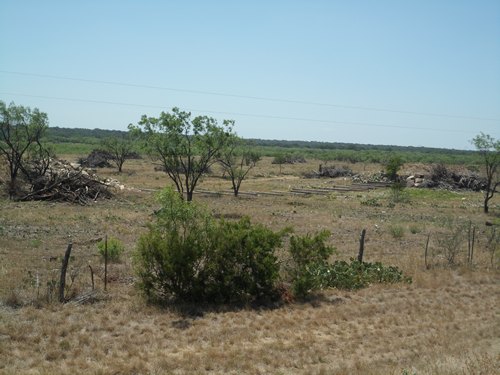
Verand landscape & ruins
Photo courtesy MF, July 2017
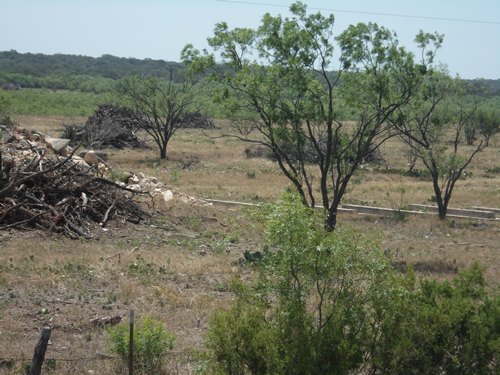
Verand landscape & ruins
Photo courtesy MF, July 2017
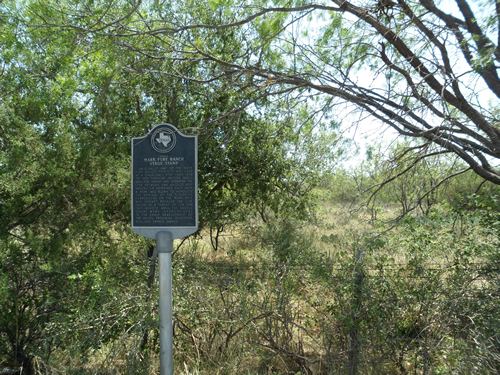
Site of Mark Fury Ranch Stage Stand
Photo courtesy MF, July 2017
Historical Marker (US 277, about 16 miles N of Eldorado):
Site of Mark Fury Ranch Stage Stand
Originally part of the Mark Fury Ranch, this site was used as a stagecoach stop from 1894 to 1909. Theodore Jackson Savell (1872-1954) owned and operated the line between San Angelo and Sonora. Six mornings each week a horn was blown to annouce the arrival of the stage. In emergencies on the road, help was prompt because the line served as a thread of life for the remote area. The Savell Stages were instrumental in the early development of the region, providing passenger, mail, and express services.
(1980)
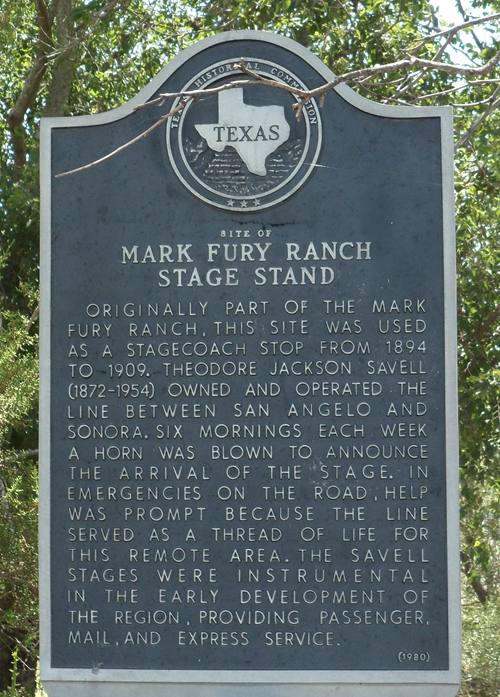
Texas Escapes, in its purpose to preserve historic, endangered and vanishing Texas, asks that anyone wishing to share their local history and vintage/historic photos, please contact us.